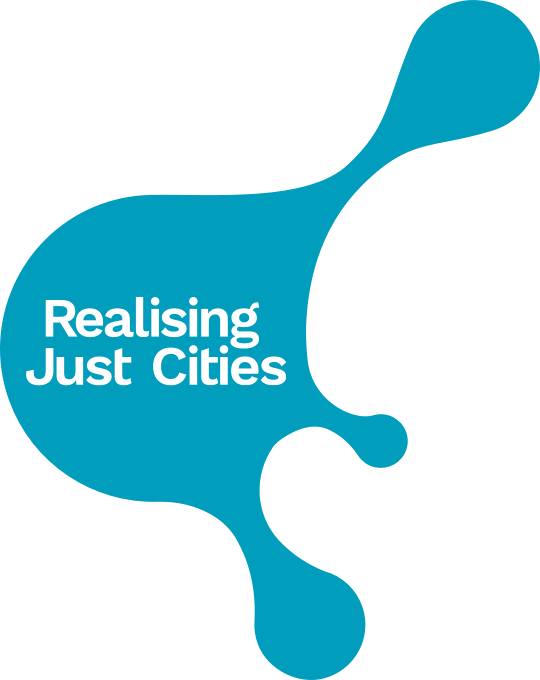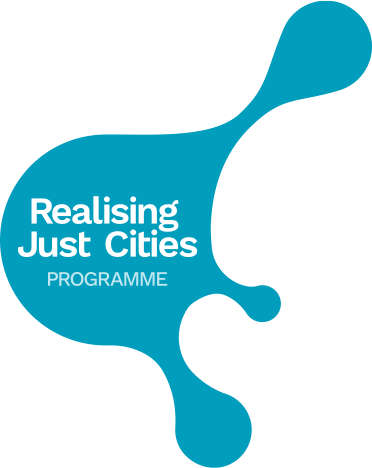How to Co-produce the City: In No Easy Steps
To exemplify co-productive design principles means challenging the idea of an ‘end-user’ who receives a final report. It means rethinking what impact looks like and how it can be achieved. Our commitment is to engage decision-makers in a collaborative learning journey through informal spaces for exchange and international networking. Trans-local learning is an important element in opening up spaces for learning and dissemination often reserved for academics to urban decision-makers. Trans-localism is more than just cities learning from each other across national boundaries. It points to the need for meaningful interactions between networked individuals and groups of similarly thinking people beyond the local. What is at stake is a sense of belonging through shared perspectives and concerns that transcend local boundaries.
In this second blog for our Trans-local Learning mini-series, guests David Rogerson and Jacob Botham from the Greater Manchester Combined Authority reflect on their experience at the International Observatory on Participatory Democracy in Barcelona in November 2018.
Blog by David Rogerson and Jacob Botham.
The International Observatory on Participatory Democracy (IOPD) is a worldwide network of local governments, organisations and research centres working together to better understand and improve local democracy.
The annual IOPD conference brings together political leaders and experts with the aim of promoting the role of cities in governance and boosting cooperation between cities and international organizations.
We were therefore happy to accept the invitation to attend the conference to learn more about this work and how we could use this learning to strengthen our own strategic approach.
Our work is guided by the Greater Manchester Strategy, ‘Our People, Our Place’ which sets out a vision for the city region of Greater Manchester to be one of the best places in the world to grow up, get on and grow old.
But we know that the vision it sets out will only be achieved through new approaches which are shaped and driven by our communities themselves. Greater Manchester’s ambition is that together we can take a proactive approach to creating new partnerships and encouraging more of the diverse voices across the city region to have an active role in shaping and challenging policy.
We know that the vision it sets out will only be achieved through new approaches which are shaped and driven by our communities themselves.
The conference provided examples from across the globe of how cities with similar aims are turning this vision into reality. In particular, it became clear from the experience of other cities that a focus on what can seem relatively small issues can act as a gateway to greater participation.
For instance, we heard from colleagues in Portugal on engaging young people in a participatory budgets process and how it was the participation of young people in the process itself as much as the outcome that was the most important factor.
We heard from a representative from Jackson, Mississippi talking about how people had organized themselves into Peoples’ Assemblies and how an initial focus on day to day concerns enabled people to open up about some of the bigger issues affecting their lives.
We also heard about some of the creative ways that people can be encouraged to get involved in local democracy and contribute to shaping local policy.
But we did not attend just to learn but to share our experience of innovation in local governance and were invited to co-deliver a session on how to co-produce the city, drawing on lessons from Greater Manchester.
The session was co-organised with a team from the Realising Just Cities programme, hosted at the University of Sheffield’s Urban Institute. The team included co-researchers Bert Russell and Beth Perry (Urban Institute), Katie Finney (Amity HCD) and Alice Toomer McAlpine (Community organiser and journalist) who are all part of Jam and Justice’s Action Research Collective.
We have been working with the Realising Just Cities team to explore the role of co-production in the realising our ambitions for the city region and how we could use their expertise to shape the principles that could underpin this.
For instance, Greater Manchester’s history of partnership working was recently extended when we agreed a GM VCSE Accord setting out a new agreement with the VCSE sector based on a relationship of trust. This highlights new, improved standards of working with the 16,000 VCSE organisations working to improve the lives of our residents across the city region.
We are also using our recently devolved powers to reform the delivery of public services to better meet the needs of residents by exploring ways in which those with lived experience of those services can help us design more effective interventions and deliver better outcomes.
Our own contributions around co-production generated lots of discussion and some interesting ideas but it is clear that there are no silver bullets. We can also not assume that what works in one place will work elsewhere.
However, the stories shared at the conference demonstrated that experimentation and being brave enough to try different approaches are key ingredients in bringing about positive change.
Experimentation and being brave enough to try different approaches are key ingredients in bringing about positive change.
As we reflect on the conference and what we have learned, it’s clear that there is much to be gained from Greater Manchester being involved in this type of international forum both in terms of networks and learning. We share a number of priorities with cities across the world particularly in addressing the challenges presented by our ageing populations, the need to deliver a low carbon, digitally connected economy with good jobs for all as well as tackling the issue of homelessness.
Whilst there are no easy answers, the conference helped us to understand how we can build on the strength of our existing relationships and the opportunity presented by devolution to develop new ways of working to truly unlock the full potential of our citizens and communities.
Download a short summary of our workshop here.
Read the first blog in this series by David Rogerson and Nick Fairclough: There's No Co-production Panacea




